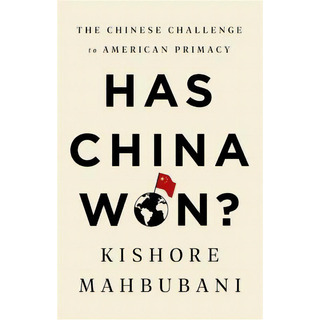
The Master Switch The Rise And Fall Of Information Empires, De Wu, Tim. Editorial Vintage, Tapa Blanda En Inglés, 2011
Cuota promocionada en 6 cuotas de
Precio sin impuestos nacionales:
Lo que tenés que saber de este producto
- Año de publicación: 2011
- Tapa del libro: Blanda
- Novela.
- Número de páginas: 384.
- ISBN: 09780307390998.
Opciones de compra:
Características del producto
Características principales
Título del libro | The Master Switch: The Rise and Fall of Information Empires |
|---|---|
Autor | Wu, Tim |
Idioma | Inglés |
Editorial del libro | Vintage |
Tapa del libro | Blanda |
Año de publicación | 2011 |
Otros
Cantidad de páginas | 384 |
|---|---|
Tipo de narración | Novela |
ISBN | 09780307390998 |
Descripción
- ANTES DE COMPRAR PREGUNTE FECHA DE ENTREGA.
- SOMOS IMPORTADORES DIRECTOS, ESTE PRODUCTO SE COMPRA Y SE IMPORTA DESDE ESTADOS UNIDOS, ESTO IMPLICA QUE USTED ESTA COMPRANDO EL MISMO PRODUCTO QUE COMPRARÍA UN CLIENTE DE ESE PAÍS.
- ANTES DE REALIZAR UNA CONSULTA, VISUALICE TODAS LAS IMAGENES DEL PRODUCTO.
Descripción provista por la editorial :
Excerpt. © Reprinted by permission. All rights reserved. Chapter 1
Exactly forty years before Bells National Geographic banquet, Alexander Bell was in his laboratory in the attic of a machine shop in Boston, trying once more to coax a voice out of a wire. His efforts had proved mostly futile, and the Bell Company was little more than a typically hopeless start-up. Bell was a professor and an amateur inventor, with little taste for business: his expertise and his day job was teaching the deaf. His main investor and the president of the Bell Company was Gardiner Green Hubbard, a patent attorney and prominent critic of the telegraph monopoly Western Union. It is Hubbard who was responsible for Bells most valuable asset: its telephone patent, filed even before Bell had a working prototype. Besides Hubbard, the company had one employee, Bells assistant, Thomas Watson. That was it.
If the banquet revealed Bell on the cusp of monopoly, here is the opposite extreme from which it began: a stirring image of Bell and Watson toiling in their small attic laboratory. It is here that the Cycle begins: in a lonely room where one or two men are trying to solve a concrete problem. So many revolutionary innovations start small, with outsiders, amateurs, and idealists in attics or garages. This motif of Bell and Watson alone will reappear throughout this account, at the origins of radio, television, the personal computer, cable, and companies like Google and Apple. The importance of these moments makes it critical to understand the stories of lone inventors.
Over the twentieth century, most innovation theorists and historians became somewhat skeptical of the importance of creation stories like Bells. These thinkers came to believe the archetype of the heroic inventor had been over-credited in the search for a compelling narrative. As William Fisher puts it, Like the romantic ideal of authorship, the image of the inventor has proved distressingly durable. These critics undeniably have a point: even the most startling inventions are usually arrived at, simultaneously, by two or more people. If thats true, how singular could the genius of the inventor really be?
There could not be a better example than the story of the telephone itself. On the very day that Alexander Bell was registering his invention, another man, Elisha Gray, was also at the patent office filing for the very same breakthrough. The coincidence takes some of the luster off Bells eureka. And the more you examine the history, the worse it looks. In 1861, sixteen years before Bell, a German man named Johann Philip Reis presented a primitive telephone to the Physical Society of Frankfurt, claiming that with the help of the galvanic current, [the inventor] is able to reproduce at a distance the tones of instruments and even, to a certain degree, the human voice. Germany has long considered Reis the telephones inventor. Another man, a small-town Pennsylvania electrician named Daniel Drawbaugh, later claimed that by 1869 he had a working telephone in his house. He produced prototypes and seventy witnesses who testified that they had seen or heard his invention at that time. In litigation before the Supreme Court in 1888, three Justices concluded that overwhelming evidence proved that Drawbaugh produced and exhibited in his shop, as early as 1869, an electrical instrument by which he transmitted speech. . .
There was, it is fair to say, no single inventor of the telephone. And this reality suggests that what we call invention, while not fácil, es simplemente lo que sucede una vez que el desarrollo de una tecnología alcanza el punto en el que el siguiente paso se vuelve disponible para muchas personas. By Bells time, others had invented wires and the telegraph, had discovered electricity and the basic principles of acoustics. It lay to Bell to assemble the pieces: no mean feat, but not a superhuman one. In this sense, inventors are often more like craftsmen than miracle workers.
EL BAZAR DIGITAL
Tienda oficial de Mercado Libre
+10mil Seguidores
MercadoLíder Platinum
¡Uno de los mejores del sitio!
+10mil
Ventas concretadas
Brinda buena atención
Despacha sus productos a tiempo
Otras opciones de compra
Medios de pago
Cuotas sin Tarjeta
Tarjetas de crédito
Tarjetas de débito
Efectivo
Preguntas y respuestas
¿Qué querés saber?
Nadie hizo preguntas todavía.
¡Hacé la primera!
Publicación #1873453918
DenunciarSe abrirá en una nueva ventana





















